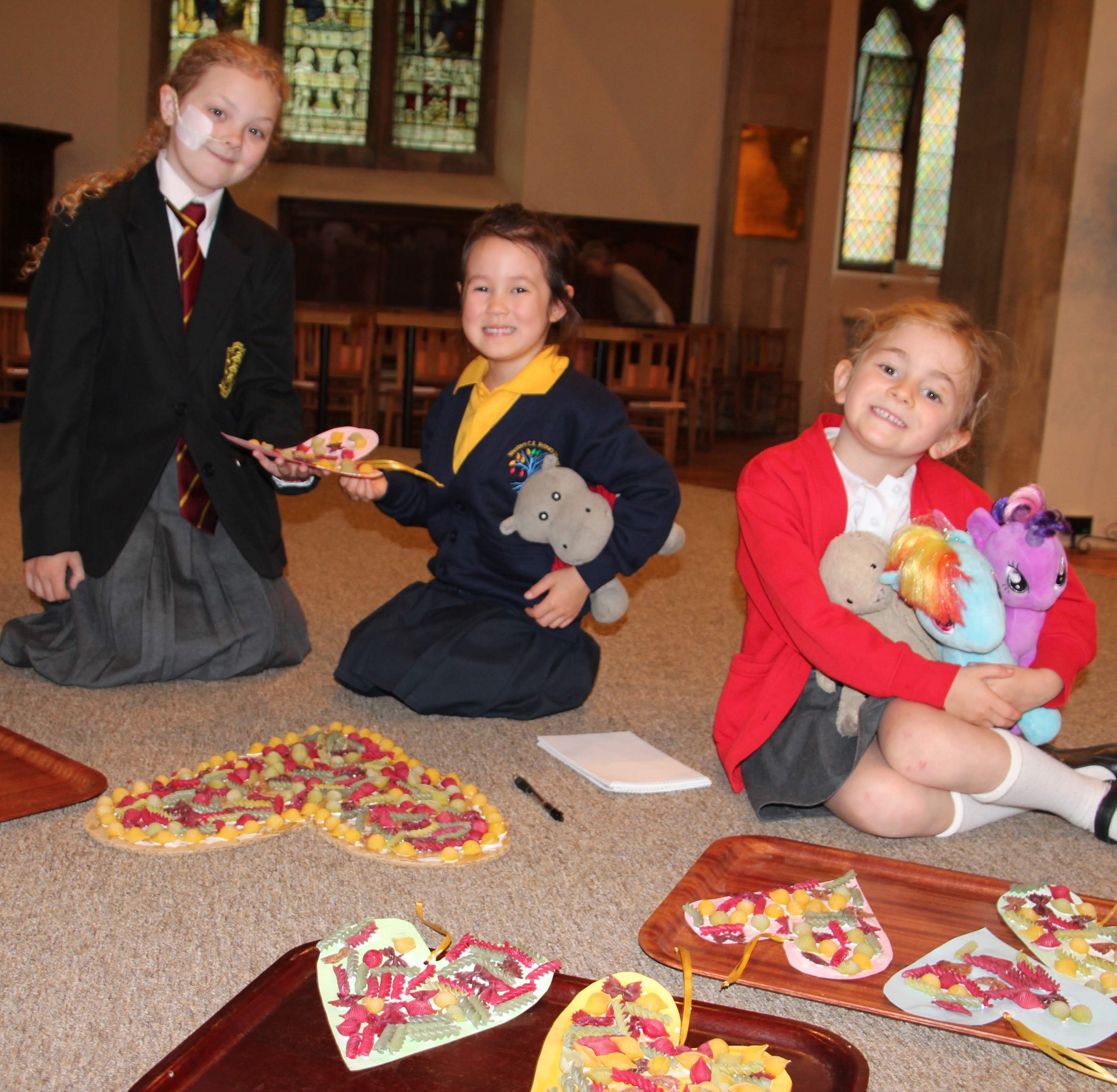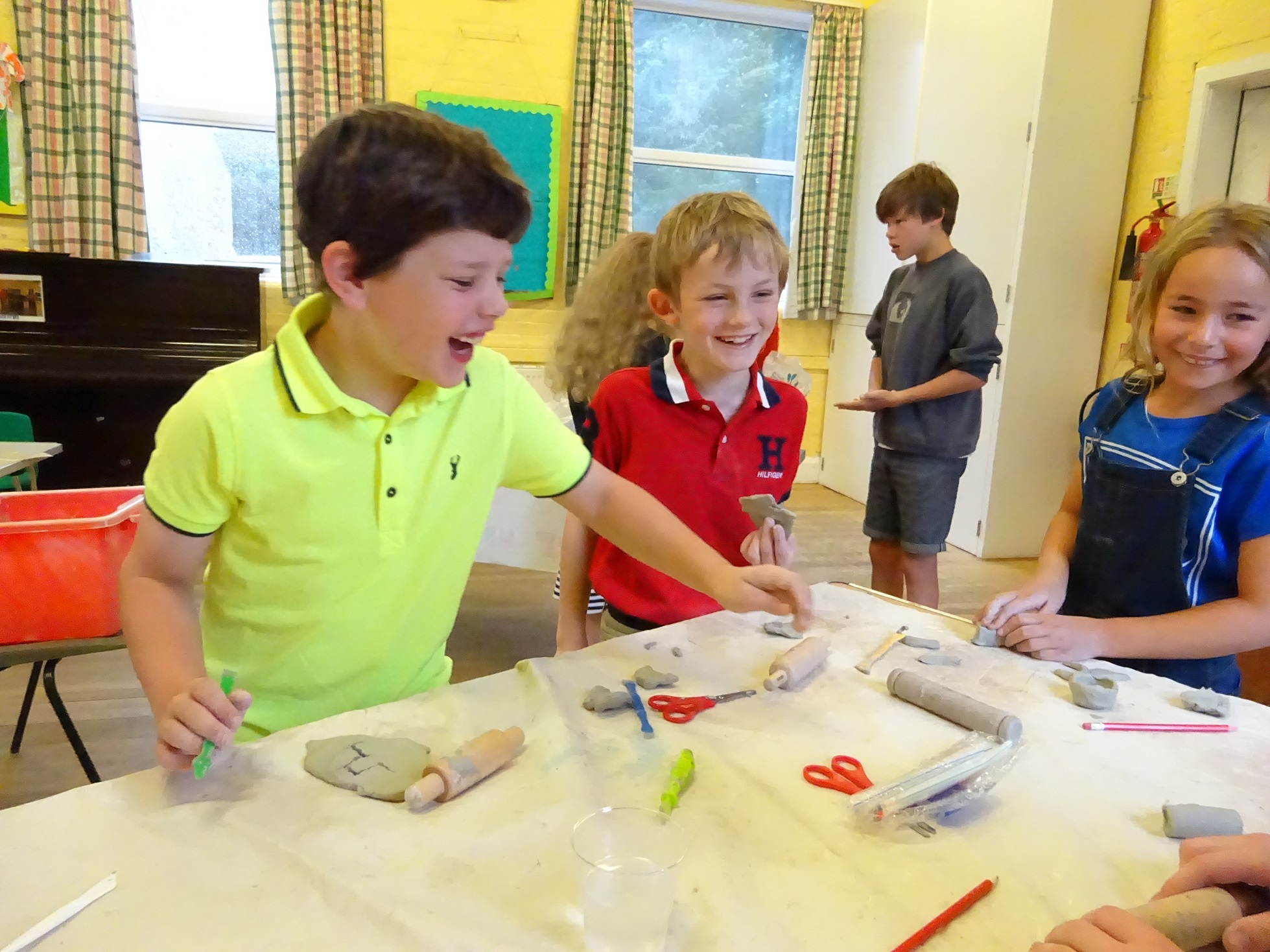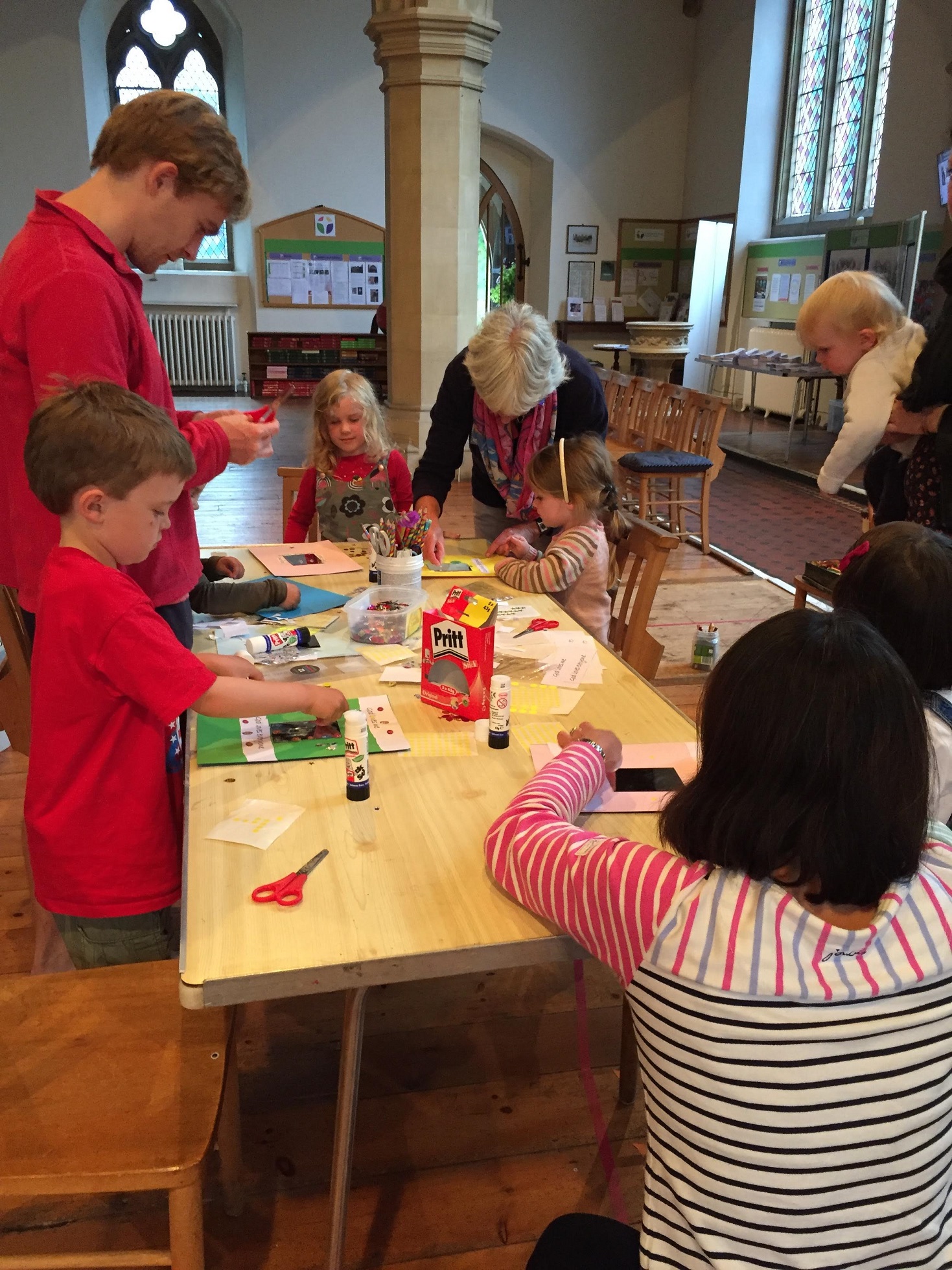Jesus ‘the ultimate teacher’ celebrated on Education Sunday
Everyone has different talents and moves at different speeds – but all are challenged to explore the world and develop their skills. That was the message for the new academic year at St Paul’s on 9 September.
In a ‘dialogue sermon’ between Peter Seal and Bill Lucas, Professor of Learning at the University of Winchester, Jesus was called ‘the ultimate teacher’.
Peter admitted that he initially struggled with learning to read, until one teacher ‘made it click’. He later went on to take a theology degree at Exeter University. Now Chaplain at Peter Symonds College, he said the connection between his experience and ‘the great example of Jesus is that I think we learn best when our teachers meet us where we are’.
Bill worked as a teacher for many years. He has a passion for outdoor learning, family learning and practical learning. For the past ten years he has been based at the University of Winchester, where he leads the Centre for Real-World Learning. Reflecting on Jesus’ promise of life in all its fullness, Bill said:
‘The fullness or abundance referred to are not material things. Instead we are being offered the chance to develop wisdom, knowledge, skills, hope, dignity, respect and, perhaps most importantly in these challenging times, learning to live well together.
‘Any teacher knows that you engage students by the quality of your material. And Jesus’ was rather good: the promise of the good news of the kingdom.
‘Jesus met people in fields, by lakes, in deserts, at parties, over supper, in streets, in synagogues, in homes. Sometimes he would do the big keynote address, as in the Sermon on the Mount. On another occasion, such as at the Transfiguration, it would be a more private coaching encounter.
‘The gospels are full of stories and powerful images that stick in our memory: Five thousand people and a few loaves and fishes, the Prodigal Son, the Good Samaritan, the water into wine – all wonderful teaching.’
Bill revealed that the gospels include some 170 probing questions with which Jesus challenges his disciples and critics. These, he said, ‘are his defining teaching technique’.
The dialogue also considered the role of lifelong learning and the effect of longer future lifespans. Bill said:
‘The pattern of “school – college or university – work – retirement” is changing. Career breaks will become the norm. We are likely to switch between work that pays and work that is voluntary. We may well go to college aged 60.
‘A full life is a life that overflows with curiosity and kindness and uncertainty and openness to new experiences.
‘I believe we need children and young people and young adults and 100-year-olds who are kind, generous, forgiving, morally brave, inquisitive, resilient, creative and collaborative. It’s these kinds of attributes that will help us to live life in all its fullness. And it is education and learning that are the means by which we can develop them.’



